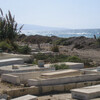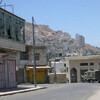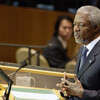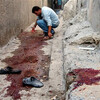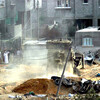
ADC Panel Examines Perceptions of Palestine
30 September 2004
Nigel Parry of the Electronic Intifada said it was encouraging to see young Palestinians like Dean Obeidallah, Maysoon Zayid, and Suheir Hammad, (p)reaching outside the choir through their art. Like Lechner, Parry related his story of “seeing the light.” He went to Palestine with no previous knowledge and wound up in a U.N. bus in a refugee camp, just in time to see a small child throw a rock—very ineffectually—at an Israeli soldier, who then knelt, cocked his gun, and aimed at the child. The soldier was about to kill the child, Parry said, when he spotted the U.N. bus, and guiltily stood up. “There is no context in the media,” Parry stated. That is why the Electronic Intifada and other information outlets are crucial, he said, because “information is what will end the conflict. If we could transport Americans to Rafah for five minutes, they would never support Israel.” Read more about ADC Panel Examines Perceptions of Palestine


